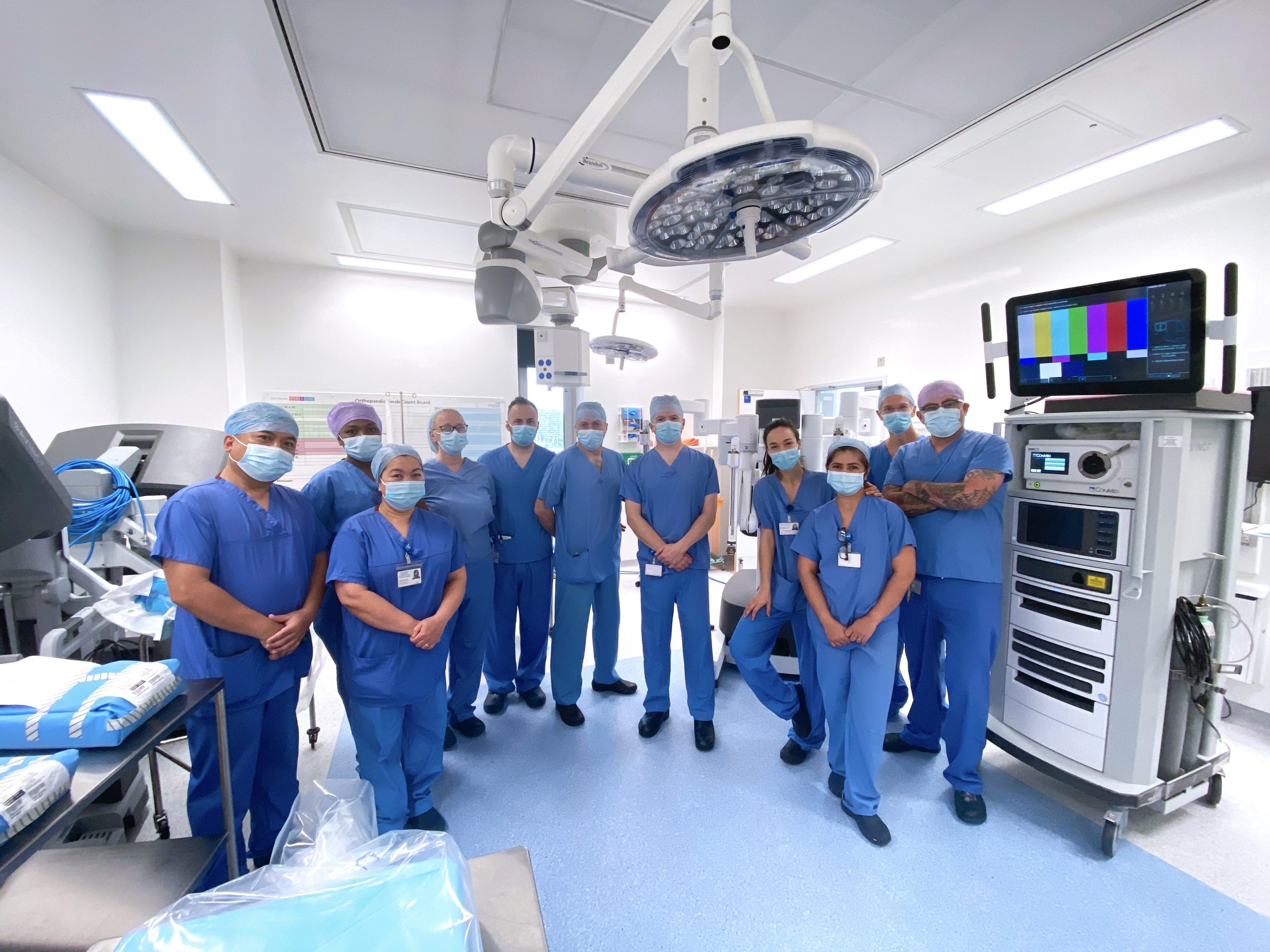The Gynaecology Cancer team at the N&N has recently undertaken its first successful robotic surgery, using one of the two new robots brought thanks to a £1m donation from the N&N Hospital’s Charity, to perform a laparoscopic surgery.
Tim Duncan is the first Gynaecology Consultant trained to use a robot and explains the benefits for patients.
“In our department, we have a long history of using minimally-invasive surgery (laparoscopic) to provide high-quality treatment with improved post-operative outcomes. Robotic surgery represents advancement in this form of surgery, allowing increasingly complex procedures to be performed. Thanks to the robot, operating times can be reduced from five to three hours and patients will be in less pain when they are recovering.
“The four- robotic arms allow me to perform manoeuvres that wouldn’t be possible using conventional laparoscopic instruments. As a surgeon, during a long operation your body is under a lot of strain, often spending hours in uncomfortable positions. This can lead to injuries. However, operating with the robot means I am seated at a console away from the patient, which is a more comfortable position to work in.
“The robot has a FireFly utility: this is a function of the camera that allow us to visualise dye within lymphatic channels and continue the implementation of sentinel lymph nodes, which are the nodes where a cancer spreads to first, so by finding and examining these nodes we can accurately assess if cancer has spread of not.
“These techniques are at the forefront of endometrial cancer treatment and something we had begun to develop using standard laparoscopic equipment. These procedures allow us to accurately pin-point where a cancer may potentially spread to.”
In order to perform the first surgery, Tim and his team were assisted by nurses from Urology, who already have significant experience of robotic surgery.
“I had to go through lengthy training on virtual reality simulators and models before operating on patients,” he said. “The theatre team had to learn new skills, such as how to place instruments into robot arms, positioning the robot correctly over the patient and how to correct small technical issues that may happen during a surgery.
“Initially, around three operations per week will now be conducted by our team using the robot, but there are plans to extend the number of surgeons in our department who are trained to use the robot. This will enable us to deliver the advantages of robotic surgery to a wider group of patients, in particular those with endometrial cancer.”







